

BLOGS > JUNE 13, 2019
BY KLAUDIA JANEK
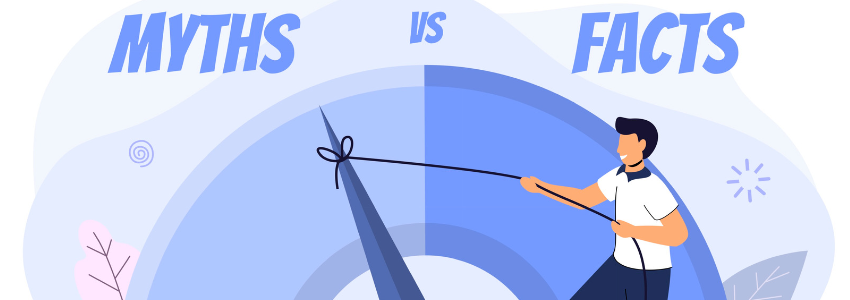
I recently wrote a blog about working in an International Baccalaureate library. There was an online discussion about whether or not the IB can require schools to hire a certified librarian. There is an actual, lengthy guide that has been published for IB schools about what is expected from IB libraries. It's called IB Libraries: A Guide for Schools (my emphasis on schools). It's designed for all staff, administrators and stakeholders, not just librarians. In short, yes, an IB school should have a functioning library with a school librarian. There are very high research expectations in every DP course that will not have good results if students do not know how to research that subject area. The quality of sources and qualifications of experts are typically woven into the criteria of many of the DP internal assessments (subject area investigations). So, you can receive marks for high-level research that goes toward your final score. Not to mention that 4,000-word extended essay.
I can't share the document freely online because it is accessible in the IB portal for current IB schools. The International Baccalaureate Organization (IBO) copyrights their material.
The IBO is a global organization that has to take into account school systems around the world. The definition of a certified school librarian in Michigan is different than that in Bulgaria or South Africa, for instance. Each country (and each state) defines what certifications teachers need and what certifications school librarians need.
I do training for the IB for new IB school librarians. I've had workshops with 10 librarians and some with 30, depending on the area and time of year. Clearly there are schools in the US that are making an investment in the IB programme and training all their teachers appropriately.
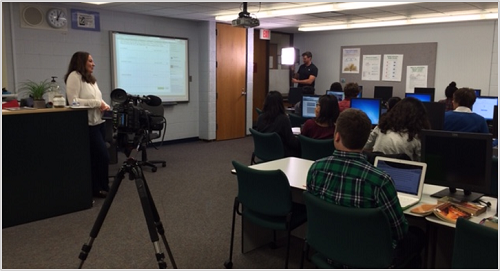
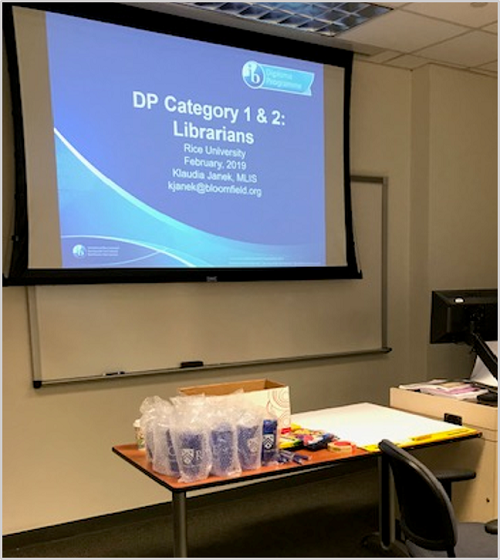
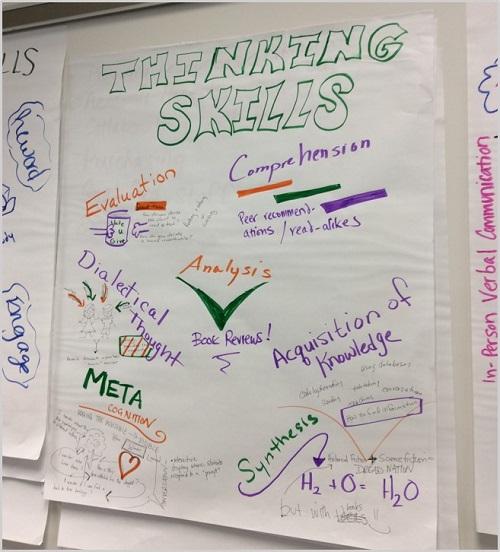
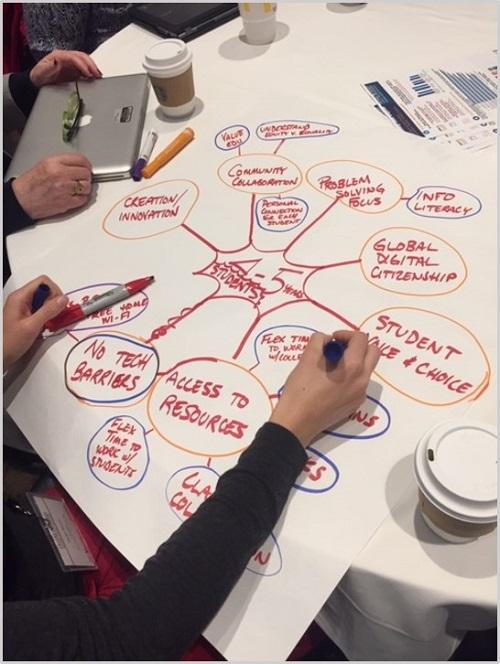
Are there schools that try to find loopholes? Yes.
Are there administrators who do not read the requirements and guidelines? Yes.
Are there schools that might make unethical decisions in writing their report? Yes.
The IB cannot enforce the details of what occurs at each school. The staff, administration and other stakeholders are responsible for the proper implementation of the IB programme. There has to be community buy-in. The IB relies on a five-year reauthorization process that is similar to NCA/AdvancED. It is up to the school to be truthful. There are some IB schools with 10 IB students, while there are others with 500 DP students. The school with 500 DP students is putting way more time, effort, resources and funding into their IB students. The IB programme might just be a blip on the radar for the school with 10 students. Maybe the rest of their students are in a program that does not emphasize libraries.
There are both private and public IB schools. Each school implements the program based on what their community needs. There are parts of the programme that can look different and then there are some non-negotiables. If a school does not have a good library program or librarian, it will come up in the authorization visit and may be put on the report as a “matter to address.” If you look at data, schools with students who earn the full diploma and do well on internal and external assessments usually have a librarian and physical library space within their school. Schools who have exam results that score in the 40th percentile or lower and have students not earning their full diploma are probably not making a significant effort within the programme with time or money. Or, maybe they serve a school previously labeled as “failing” and now they have students taking IB-level courses and just a few students earning their full diploma is a victory to be celebrated.
This link will take you to the IBO Statistical Bulletin. It gives you an overview of world averages. You can take that information and compare it to an IB school for which you have access to its individual results. Then you can see where that school falls, and whether they are high-performing, average or low-performing. Many times, performance scores correlate to the size of the programme and the investment made in it. But keep in mind these are generalizations.
A lot of state school library organizations will have an IB group within them. For example, the Michigan Association for Media in Education (MAME) has an IB special interest group (SIG) that costs $2 to join once you pay your annual membership fee ($50) to MAME. I'm the chair of that group, and we share information about our programs. It's very helpful to be with like-minded colleagues who share a common curriculum and have to make specific contributions within the programme. It gives us a chance to meet online and at the annual conference.
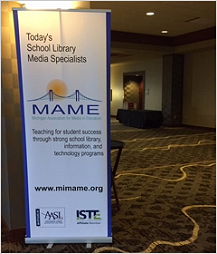
So yes, there are specific guidelines, but no, a global organization cannot dictate employment of specific individuals at the local level.
Another discussion topic arose as to where there are schools run directly by the IB. The IBO does not have their own schools. Just like AP does not have their own schools. It's solely a program/curriculum.
There are many wall-to-wall IB schools in the US. I happen to work in a school where every single Grade 9 and 10 student is in the MYP. Every Grade 11 and 12 student is in the DP. On average, 97% of our graduates earn their full diploma and a few students earn certificates in certain subject areas. So, for the school that I work at, you can only do IB. There are no other choices.
We have an older building and struggle with funding – just like every other public school in Michigan – but my administration values the library program. I am here full-time on a flexible schedule and am fully certified. I am not assigned any of my own classes. I collaborate and co-teach with classroom teachers on various projects. I go to IB professional development and I go to school librarian professional development. I am very active in our state school library organization. I think that all students in my school know who I am and can pinpoint when I came into their classroom to teach them research skills and information literacy things. We have a nice database collection and 12,000+ physical items in our collection. I share a lot of my IB-specific resources as public collections within Follett Collections by Destiny®. I am also connected with my international colleagues within the myIB Portal, which is on the same platform as ALA Connect and Follett Community.
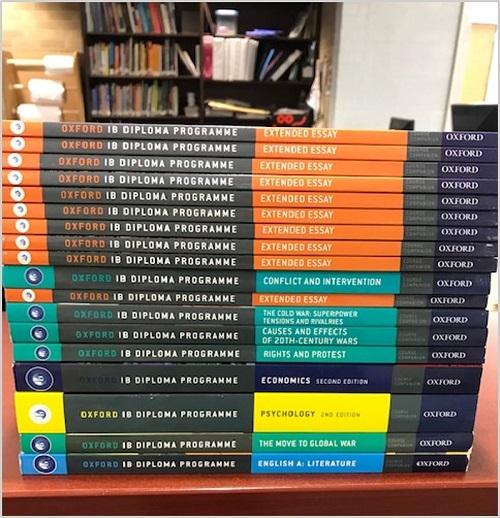
There are a lot of high schools in the US that offer IB, AP, STEM and vocational classes all within one building or campus. There are also a lot of private schools that offer only IB and there are a lot of private schools that offer both IB and AP.
There are some school library programs that are outstanding and have school librarians who are "movers and shakers" and there are some neglected and underfunded school libraries, where one person tries to cover a district and do the best they can with $0. There are a variety of administrative and funding decisions that can destroy a good library program. On the other hand, there are some ineffective school librarians out there, just like there are some ineffective teachers in the classroom. Part of what I love so much about the IB is that we share a common vision and philosophy, but there are a lot of school-based decisions to implement in any particular school or community. We still have to advocate for ourselves and show off what we do to stay in the conversation.
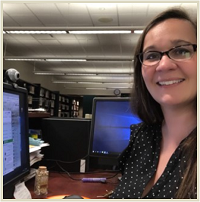
KLAUDIA JANEK
IB Teacher, Librarian
International Academy, Bloomfield Hills, Michigan
MAME board member, Extended Essay Coordinator, IB Librarian, IB Workshop Leader, IB Online PD Facilitator, IB Workshop Developer, ALA / AASL / YALSA member. Visit my library portal page. Follow me on Twitter @kjanek.
Unbeatable Deals on Favorite Next-in-Series Books
July 15, 2025
Plot twist! For a limited time only, Follett Content is offering next-in-series releases at an amazing preorder discount. These hit series are beloved by readers of all ages, and the new installments are sure to be favorites in your classroom or...
Read more
An Author Interview with Drew Daywalt
June 27, 2025
Drew Daywalt, award-winning author of the best-selling The Day the Crayons Quit series, is about to release his second middle grade book with illustrator Mike Lowery, No Sam! and the Meow of Deception. The title continues the hilarious adventures of Sam...
Read more
An Author Interview with Adam Wallenta and Makana Wallenta
June 27, 2025
Get ready to rock the galaxy with the first volume of Punk Taco – a wildly imaginative, music-fueled sci-fi adventure from father-son duo Adam and Makana Wallenta. Created when Makana was just five years old, this award-winning graphic novel now debuts...
Read more
An Author Interview with Lisa Manuzak Wiley
June 27, 2025
A bewitching new graphic novel series is arriving this fall!Author-illustrator Lisa Manuzak Wiley, who grew up in Hawaii, blends cozy fantasy, sisterhood, and tropical charm in a heartfelt homage to her roots: The Witches of Pepperwood Bay Vol. 1. Lisa...
Read more
What We're Reading – Books to Add to Your TBR List
June 4, 2025
As a Follett Content Outside Sales Consultant, I’m not only an avid reader, but also a passionate book reviewer! I’ve curated my top 10 book picks that are perfect for adding to your To Be Read (TBR) list. These titles...
Read more
Author Joseph Koszary on the Changes Made to the International Baccalaureate Extended Essay
May 22, 2025
As someone who’s served as an extended essay coordinator, examiner, and supervisor, I’ve grown deeply familiar with the previous incarnation of the extended essay (EE). Like many of you, years of accumulated experience have made supporting students through the process...
Read more